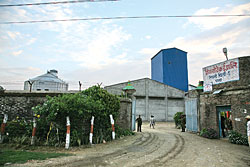 MIN RATNA BAJRACHARYA |
But, given Nepal's industrial realities, the hard goal of attracting investments will not work if the private sector-promoting bodies do not think ahead to create, nurture and promote certain jobs that sound 'soft' but are vitally important to attract investments.
What are these investment-attracting jobs that are going to be important in New Nepal?
Community mediators: Almost all geographic, ethnic and business-related communities have been politicised in today's politically super-conscious Nepal. Excess politicisation creates rifts, factions and destructive rivalries among various groups, all of which waste time and money. For instance, when those who want to build hydropower dams visit the sites, they quickly realize that they have to assuage, in an informal manner, all the legitimate and illegitimate grievances of all the disparate communities who live and work in the surrounding areas.
Some communities want money, and then more money and more money. Some want laptops for their children. Some want shares, and quick dividends. Some want roads and schools built immediately. And all this before the potential investors have put in a single paisa. Besides, there's no guarantee that the locals, egged on by party-political bodies, will not demand more once the projects get underway.
One solution to solving this recurring problem is to start investing in the training of community mediators who can, as honest brokers, articulate their communities' concerns to the investors and convey investors' desires to the communities while explaining the scenarios with no investment.
Labour negotiators: Investors are not likely to start factories that employ thousands of workers. That's because trade union politics, ranging from quietly insistent to stridently militant, is a fact of life in today's Nepal. When labour union problems start, lawyers can be of some help.
But in almost all cases, the lawyers' remedy amounts to throwing bigger and bigger sums of owners' money to the agitating labourers, with the hope that the quiet will come about. Still, even after spending a small fortune, investors cannot rest assured that the labour problems are really over.
This problem calls for the development of labour negotiators who spend time and resources to build and sustain rapport with all national union leaders, union federations and politicians. Most MBA managers, domestic or foreign, are clueless about what to do when continually confronted with table-thumping union netas with loud, booming voices. Being defensive or aggressive, the managers often end up making a bad situation worse by reacting too emotionally.
Lobbying firms: Lobbying conjures up images of shady dealings and putting spin. In Nepal's case, however, since lobbying is a non-existent industry in a formal sense, it can be started by organisations that specialize on educating the politicians and decision-makers about the importance of trade, markets, competition, and the umpiring role that only the government can play.
If businessmen push for certain policies, their self-interests will be evident, and there's no guarantee that the government will actually listen to them. But if there are lobbying firms that can couch the wants in broad pro-market terms as opposed to pushing narrow pro-business views, their opinions are likely to sway the politicians. Besides, lobbying firms become good at pressing the buttons of the press, the public and the government at the same time to push for what they want. That's a skill which streams of trade delegations to the PM's office have never developed.
Saying Nepal wants to make it easy to attract investments is easy. In fact, all governments have said that since the 1980s. Unless we can signal to investors that we have collective capabilities to work well with communities, labour and the government, investors will remain polite and distant.



